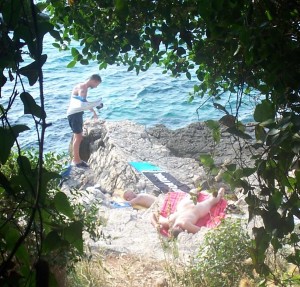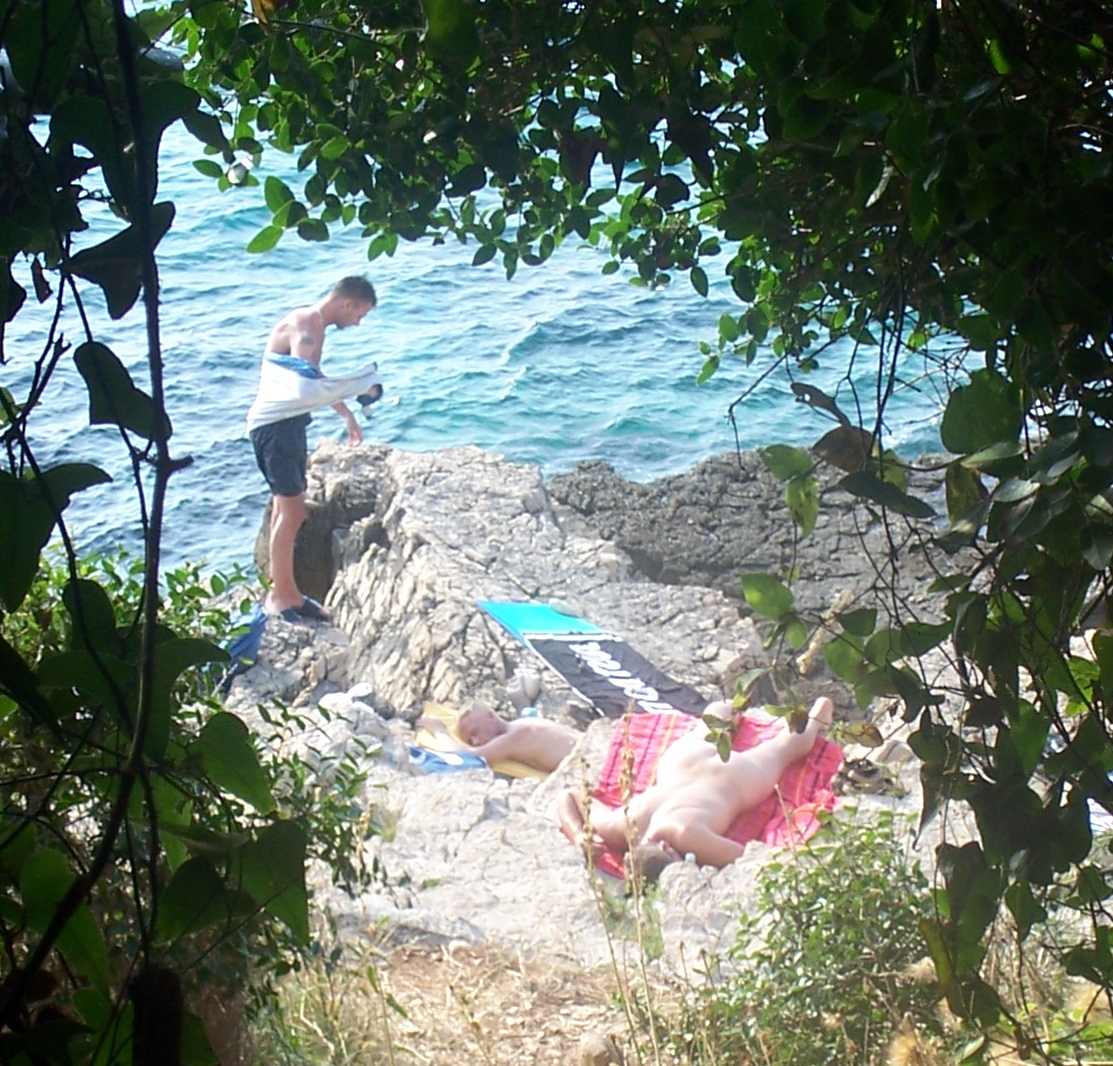
I had been waiting patiently until the other tourists had left the office in this seaside Croatian town on the peninsula of Istria to ask my question: “Where is the gay beach here?” I ask the woman behind the desk. Her eyes dart to the floor as she sits behind the desk in the tourism office and replies to me.
I hold a map aloft, hoping she’ll point at it. She doesn’t come near. “There is no official gay beach here,” she replies apathetically, as though programmed to reply this way.
“Really?” I ask aloud. “This area is well-known throughout the region for its gay beach.” I consider illustrating my point further. On any given day during the summer months, I have seen dozens of gay men sunbathing on this rocky Rovinj beach—not just local Croatians, but also visitors from nearby countries. Some have told me that this has become something of a summer meeting point for gay central Europeans.
Before I can gather all this evidence in my head, she repeats the line again: “There is no official gay beach here.”
I wonder if we’re playing a game of cat and mouse, and so I smile and try another tack: “Ok, where might the unofficial gay beach be?” She doesn’t smile along with me. At this, she grabs my map, and points randomly at general beaches in the area. A sun-burned elderly British man and woman enter the tourist office and begin concurring with her beach choices. At that moment, I realize that my chances of getting directions to the gay beach have washed out with the tide.
I should back up. This is the second July in a row that I have attempted this social experiment. Last year, I genuinely did not know how to get to the gay beach that I first heard about from European friends. I entered the office as I did this year and waited patiently to ask. Last year, a different woman at the front desk answered the same way: “There is no official gay beach here.” She repeated the line again and again as I tried to ask the question in different ways. But last year, I achieved a different result: the woman, exasperated by my determination, escorted me to a back office. Here, another woman sitting at a computer shyly held my map and pointed the way. She smiled, faintly.
This year, I knew the way. My interest was not directional. I was curious whether official LGBT recognition had increased now that Croatia had entered the European Union earlier in the month. I’m curious to see if the tourist office in this town of approximately 14,000 people had made any progress beyond the stunted reaction I received last year.
It hadn’t. My initial reaction was one of anger. Wasn’t this the definition of discrimination: to treat people differently based on perceptions and prejudices? If the tourist office were to offer such a rehearsed evasion to people looking for a church or fair, wouldn’t people be irate?
I arrived at a gay Croatian friend’s home in the evening and recounted this episode. Having lived with his male partner of five years, my friend, age 35, out to family and friends, scoffed at my experiment: “You know where the gay beach is. People who need to know can find it. You found it last year without having the tourist office publicly announce it to you.” (It’s true that a simple web search for “Gay Croatia beach” shows you the way.)
His rebuke caused me reconsider my angry reaction. One thing I’ve learned while living and traveling abroad is that we Americans don’t always do nuance very well. We want answers to be literal, explicit, and we want everything done quickly. (Only later did I pause to consider that Croatia had its first gay pride parade, in the capital city of Zagreb, in 2002.) I came to understand my friend’s perspective. Do we really need every aspect of our gay culture to be public knowledge, every fetish given its own Tumblr page? As much as may be gained, is something lost when every aspect of gay culture is fodder for consumption by the masses?
The truth is this isn’t just a gay beach of sunbathers: it’s a nudist gay beach where the sultry sun leads many men to seek repose and penetrate the abutting forest. If Croatian tourism officials were suddenly to start promoting Rovinj as a gay destination, would that attract hecklers or even violent protestors, both of which exist in this conservative and historically Catholic country? Or might local patrols start appearing to ward off “unseemly behavior” at a new state-sanctioned tourist destination? Measured from my local friend’s perspective, these considerations become as thorny as the brambles above the shoreline.
Late one night as I’m walking along the main street to return to the town center, a young Croatian waiter stops his scooter to offer me a ride after he finishes his shift at a pizzeria. I straddle him from behind on the seat. He asks me which bar I had been at. “Labyrinth,” I answer, the only gay bar along the coastline of Croatia. “Do you know it?” I ask, grabbing his pelvis tight as the street curves.
“Yes, it’s a gay bar,” he answers chummily, before quickly adding, “I’m not gay. I don’t know much about it and—” he pauses. “I don’t want to say the wrong thing.”
Perhaps this is part of the reasoning of the local tourist office also. Perhaps by their official silence they were doing us a favor.






